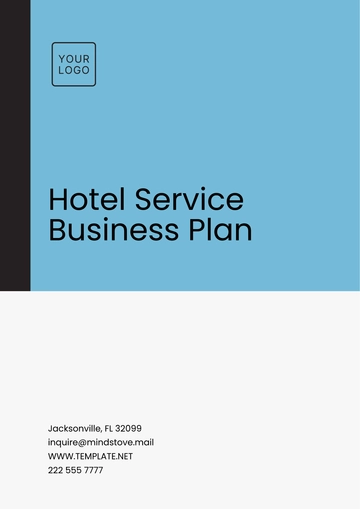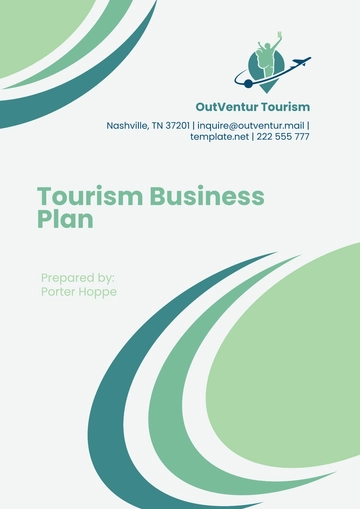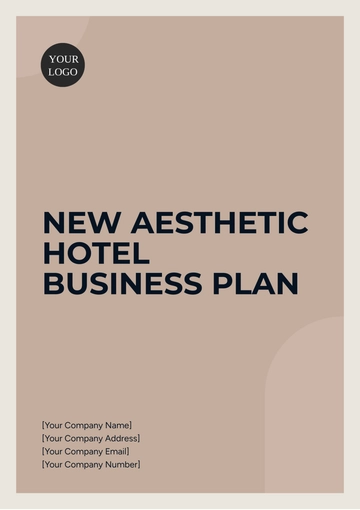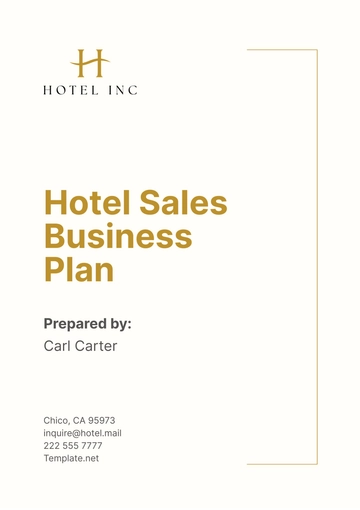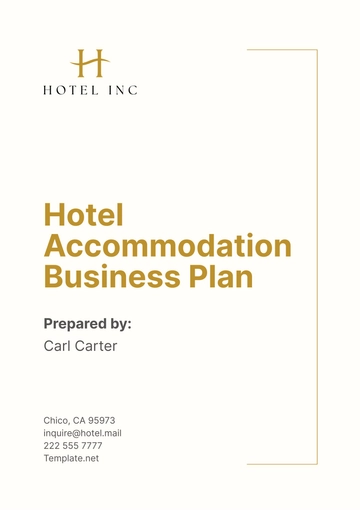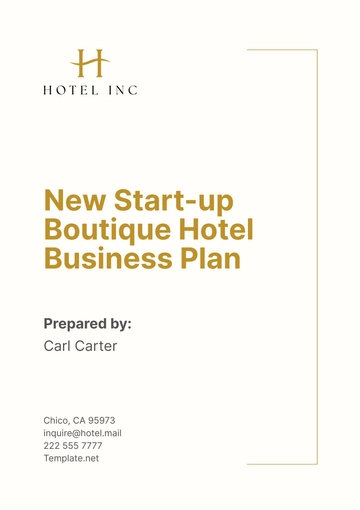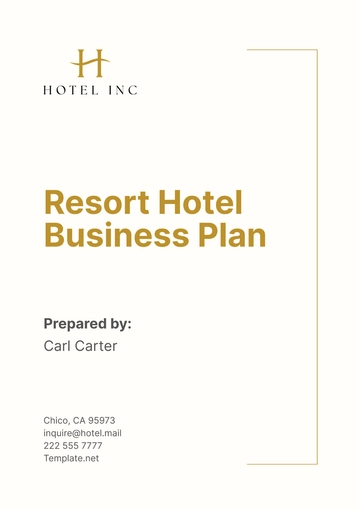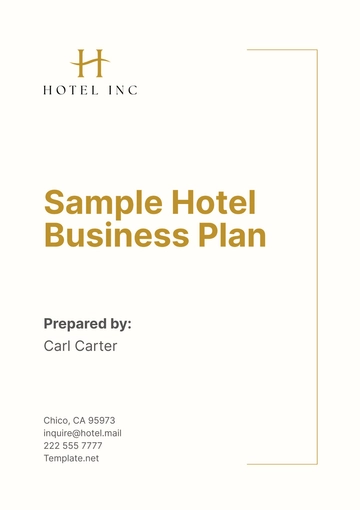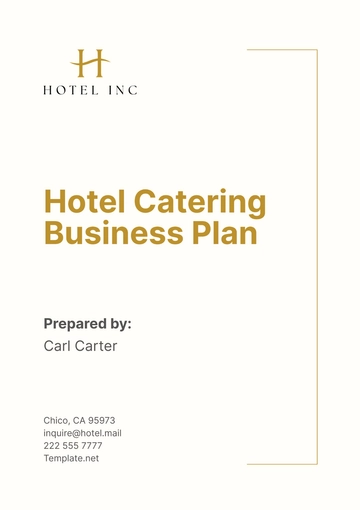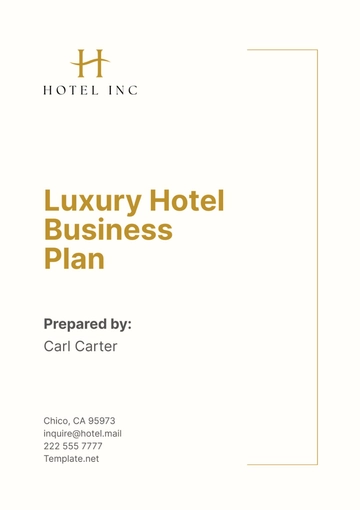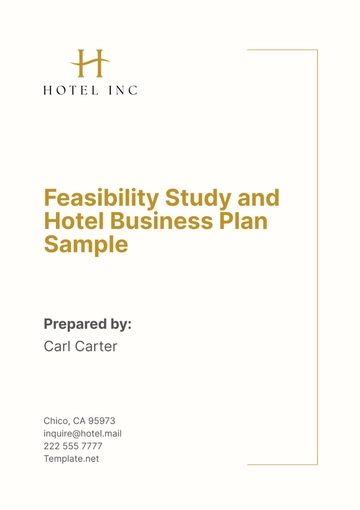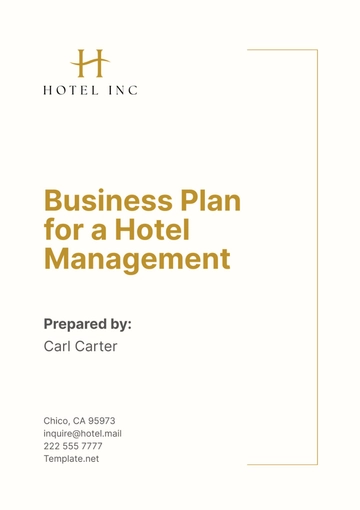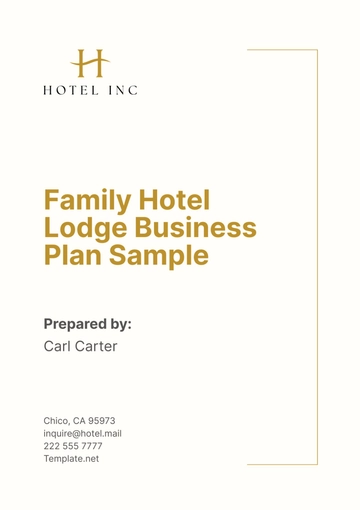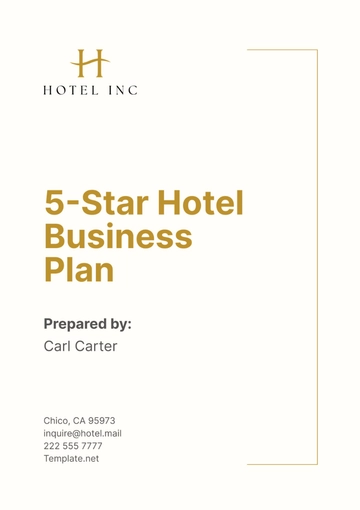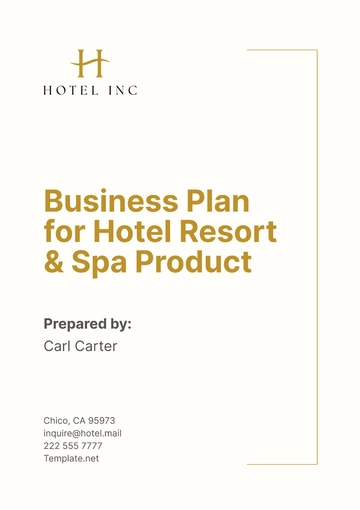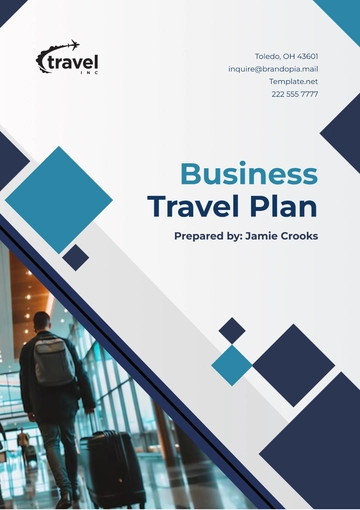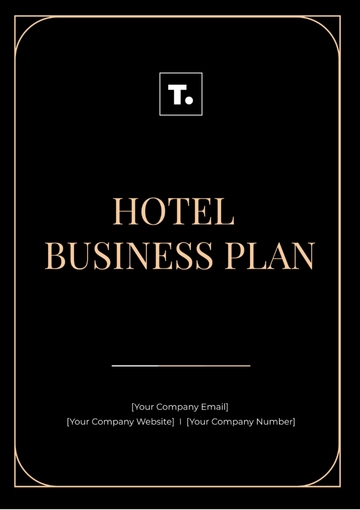Free Hotel Catering Business Plan
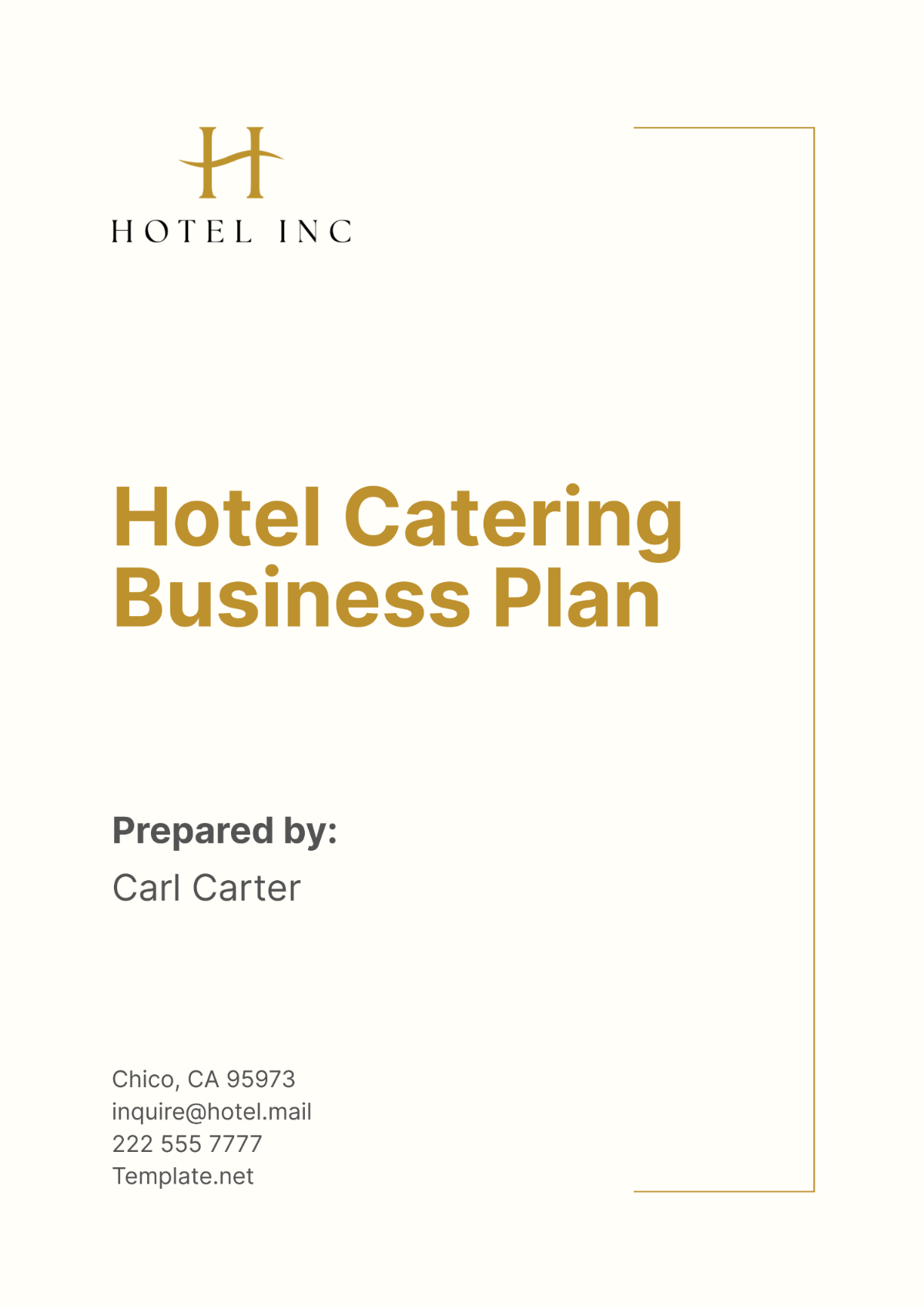
I. Company Description
We have a rich history of providing exceptional hospitality services to our guests. Our company operates as a privately-owned entity with a legal structure as a limited liability company (LLC). We are strategically located in a prime area, offering state-of-the-art facilities that include modern banquet halls, meeting rooms, and a fully equipped kitchen designed to handle large-scale catering events. Our facilities are designed to accommodate a wide range of events, from intimate gatherings to large corporate functions.
II. Market Analysis
A. Industry Overview
The catering industry has shown consistent growth over the past decade, with an annual growth rate of 4.6%. In [Year], the industry was valued at approximately $70 billion, driven by increasing demand for professional catering services for corporate events, weddings, and private parties. The trend towards outsourcing food services for events is expected to continue, providing ample opportunities for growth.
B. Competitive Analysis
Our hotel competes with several established catering services in the region. Below is an analysis of our main competitors:
Competitor | Market Share | Strength | Weakness |
|---|---|---|---|
25% | Brand recognition | High pricing | |
20% | Wide menu variety | Limited service area | |
15% | Customer service | Small capacity | |
10% | Competitive pricing | Inconsistent quality |
We position ourselves as a premier catering service provider with a balance of high-quality food, competitive pricing, and comprehensive service coverage. Our extensive facilities and experienced team give us a significant edge in delivering exceptional catering services.
C. Target Market
Our target market includes corporate clients, brides and grooms, event planners, and individuals hosting private parties. Below is a demographic analysis:
Demographic | Needs |
|---|---|
Corporate Clients | Professional setup, timely service, diverse menu options |
Brides and Grooms | Customizable menus, elegant presentation |
Event Planners | Reliable service, flexibility, comprehensive packages |
Private Parties | Personalized menus, intimate settings, seamless execution |
III. Services Offered
A. Types of Catering Services
We offer a variety of catering services to cater to different types of events. These include:
Corporate Events: Professional catering for meetings and conferences.
Weddings: Elegant and customizable catering packages for weddings.
Private Parties: For birthdays, anniversaries, and other private celebrations.
Conferences and Seminars: Comprehensive catering solutions for large-scale conferences and seminars.
B. Menu Options
We provide a diverse range of menu options to suit different tastes and event types. These include:
Buffet: A wide selection of dishes served buffet style.
Plated Dinners: Formal dining experience with individually served courses.
Cocktail Receptions: Appetizers and hors d'oeuvres for social gatherings.
Custom Menus: Tailored menus designed to meet specific client preferences.
C. Additional Services
In addition to catering, we offer several supplementary services to enhance the event experience:
Event Planning: Comprehensive planning to ensure seamless execution.
Décor and Setup: Professional decoration to match the event theme.
Staff and Equipment: Provision of trained staff and necessary equipment for the event.
IV. Marketing and Sales Strategy
Our marketing and sales strategy focuses on establishing a strong brand presence and reaching our target market effectively. This includes:
Branding and Positioning: Establishing a strong brand identity that resonates with our target market.
Online Presence and Digital Marketing: Utilizing websites, social media, and online ads to reach potential clients.
Print Advertising: Advertising in local magazines, newspapers, and event directories.
Social Media Strategy: Engaging with customers on platforms like Instagram, Facebook, and LinkedIn.
Partnerships and Collaborations: Partnering with event planners, venues, and other relevant businesses to expand our reach.
VI. Operations Plan
A. Catering Process
Our catering process ensures a smooth and efficient service delivery. The stages include:
Client Consultation: Understanding the client's needs and preferences.
Menu Planning: Designing a menu that fits the event and client requirements.
Event Execution: Coordinating all aspects of catering during the event to ensure seamless service.
B. Supplier Management
We work with reliable suppliers to ensure quality and consistency in our offerings.
Supplier | Strength |
|---|---|
Supplier A | High-quality produce |
Supplier B | Timely delivery |
Supplier C | Competitive pricing |
Supplier D | Specialty items and rare ingredients |
We manage our inventory through regular audits, ensuring that we always have the necessary supplies while minimizing waste.
C. Staffing Plan
We hire and train staff to maintain high standards of service.
Role | Responsibilities |
|---|---|
Executive Chef | Menu planning, kitchen oversight |
Sous Chef | Assisting the executive chef, food prep |
Catering Manager | Client coordination, event oversight |
Service Staff | Serving guests, setup and cleanup |
We focus on continuous training and development to ensure our team delivers exceptional service.
D. Quality Control
We implement strict quality control measures to maintain high standards.
Health and Safety Standards: Regular adherence to food safety regulations.
Feedback: Collecting client feedback and making necessary improvements.
Staff Training: Ongoing training programs to ensure service excellence.
Routine Inspections: Regular inspections of kitchen and service areas to maintain hygiene and quality.
VI. Management and Organization
Our management team is composed of experienced professionals who bring diverse expertise to ensure the successful operation of our hotel catering services. Each member plays a crucial role in overseeing different aspects of the business, from culinary excellence to client relations and operational efficiency.
Position | Responsibilities |
|---|---|
General Manager | Overall business operations, strategy, and growth |
Executive Chef | Menu planning, kitchen management, quality control |
Catering Manager | Client coordination, event planning, execution oversight |
Marketing Manager | Branding, marketing strategies, client acquisition |
Operations Manager | Logistics, supplier management, staffing |
VII. Financial Plan
A. Startup Costs
Our initial investment covers essential startup costs necessary to launch and sustain our catering services. These costs include kitchen equipment, initial inventory, marketing, and staffing.
Item | Cost |
|---|---|
Kitchen Equipment | $50,000 |
Initial Inventory | $20,000 |
Marketing and Advertising | $15,000 |
Staff Hiring and Training | $10,000 |
Miscellaneous | $5,000 |
Total | $100,000 |
B. Revenue Projections
We project our revenue growth over the first three years based on market analysis and anticipated demand.
Year | Revenue |
|---|---|
Year 1 | $250,000 |
Year 2 | $350,000 |
Year 3 | $450,000 |
C. Cost Analysis
We have identified both fixed and variable costs associated with our catering services.
Cost Type | Amount |
|---|---|
Fixed Costs | $100,000/year |
Variable Costs | $50,000/year |
D. Profit and Loss Projection
Our profit and loss projection outlines our expected financial performance over the next three years.
Year | Revenue | Expenses | Profit |
|---|---|---|---|
Year 1 | $250,000 | $150,000 | $100,000 |
Year 2 | $350,000 | $170,000 | $180,000 |
Year 3 | $450,000 | $200,000 | $250,000 |
E. Break-Even Analysis
Our break-even analysis indicates the point at which our revenues will cover our expenses. We estimate our break-even point to be at $150,000 in annual revenue, considering our fixed and variable costs.
VIII. Risk Analysis
A. SWOT Analysis
We conducted a SWOT analysis to identify our strengths, weaknesses, opportunities, and threats.
Strengths | Weaknesses |
|---|---|
High-quality service | Initial high startup costs |
Experienced management team | Limited market presence |
Comprehensive service range | High dependency on suppliers |
Opportunities | Threats |
|---|---|
Growing demand for catering | Intense competition |
Expansion into new markets | Economic downturn |
Strategic partnerships | Changes in regulations |
Our strengths in service quality and experienced management provide a solid foundation, while our opportunities for growth and expansion are promising. However, we must address initial costs and market presence, and mitigate threats from competition and economic factors.
B. Risk Management
We have identified potential risks and assessed their likelihood and impact.
Risk | Likelihood | Impact |
|---|---|---|
Economic downturn | Medium | High |
Supplier issues | Low | Medium |
High competition | High | Medium |
Regulatory changes | Medium | Low |
To mitigate these risks, we will implement the following strategies:
Economic Downturn: Diversify services and maintain a flexible pricing strategy to attract cost-conscious clients.
Supplier Issues: Establish relationships with multiple suppliers to ensure consistent supply and negotiate favorable terms.
High Competition: Differentiate our services through unique offerings and superior customer service.
Regulatory Changes: Stay informed about industry regulations and maintain compliance to avoid disruptions.
By proactively addressing these risks and leveraging our strengths, we aim to establish a resilient and successful hotel catering business.
- 100% Customizable, free editor
- Access 1 Million+ Templates, photo’s & graphics
- Download or share as a template
- Click and replace photos, graphics, text, backgrounds
- Resize, crop, AI write & more
- Access advanced editor
Plan your hotel's catering services with our editable and customizable Hotel Catering Business Plan Template from Template.net. Editable in our AI Editor tool, this template provides a comprehensive framework for outlining your business strategy, menu options, and marketing plans. Tailor it to suit your hotel's unique offerings and operational goals with ease.
You may also like
- One Page Business Plan
- Coffee Shop Business Plan
- Restaurant Business Plan
- Food Business Plan
- Real Estate Business Plan
- Executive Summary Business Plan
- Cover Page Business Plan
- Nonprofit Business Plan
- Daycare Business Plan
- Construction Business Plan
- Startup Business Plan
- Medical Business Plan
- Bakery Business Plan
- Service Plan
- Hotel Business Plan
- Catering Business Plan
- School Business Plan
- Healthcare Business Plan
- Transportation Plan
- Sports Plan
- Car Wash Business Plan
- Salon Business Plan
- Clothing Business Plan
- Farming Business Plan
- Boutique Plan
